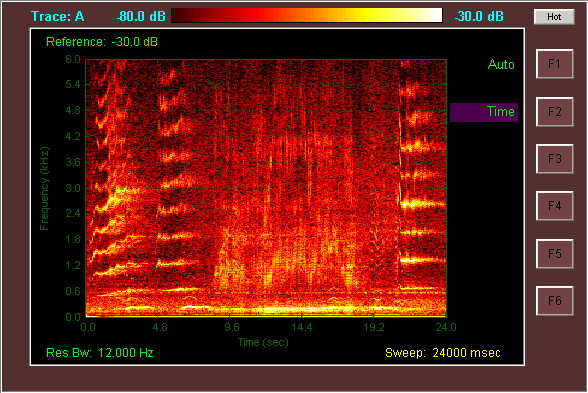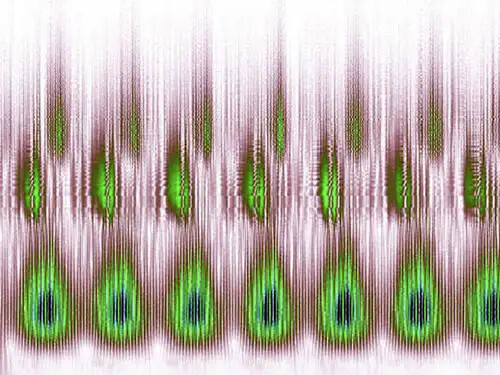Was listening to my favorite J.S. Bach piece, Fugue in G Minor (The Little Fugue) and mentioned to my spouse that fugues are the Baroque era’s version of looping. That was met with an expression that can only be described as “you’re crazy.”
Sigh…I don’t think I’m wrong. ![]()
Fugues are indeed looping, and in a contrapuntal fashion, no less.
Tell your husband from me that he’s being musically dull. ![]()
I agree that it’s looping in the sense that the themes are repeated and developed in counterpoint.
When I was in London last winter I saw a play in Soho called The Score. It’s a story about a meeting between J.S. Bach and Fredrick the Great. Fredrick (and some of his court) devise a theme they challenge Bach to develop a 3-part fugue for. This theme was purposely constructed to make Bach’s task nearly impossible, but Bach does it on the fly. He later, given more time, constructs a six part fugue on the theme.
I love the Little Fugue. On the pipe organ it is amenable to very quiet or very bombastic registrations … somehow it morphs to fit in whether it’s just chiffy flutes or a growly tutti registration. It can be gentle and meditative or dark and ominous, depending on your mood and how you approach it. Unlike the much better known Fugue in D Minor, which seems to “want” a more relentless approach. IMO anyway.
This isn’t my favorite rendition (a bit too brisk and mechanical IMO, and a rather sterile digital instrument of some kind) but it comes with an interesting animation that will illustrate your point to your spouse ![]()
This animation as an exercise in examing a piece of classical music was actually enlightening in an unexpected way.
I have always believed that there is a profound connection between music and mathematics (and I am not the first person to point this out, as I think this relationship has often been commented on before), and this animation helped illustrate this connection.
The conservatives in this country want to gut the budgets of schools by targeting arts and music, while supposedly supporting math and science . . . while failing to see that everything is interconnected.
They seem to be pretty anti-science too, although it’s true that in the past the arts have been the first to go.
It is not uncommon for software developers like myself to be into music, often (though not always) in part because of its mathematical regularity. My stepson is into modern (dissonant) classical music and introduced me to the concept of serialism which is a popular form in that genre that involves a fixed progression of notes in, IIRC, cycles of twelve. It is completely different which is why it sounds alien to the ear. But my stepson is the guy with the undergrad math degree and he loves it in part for its mathematical perfection. My impression of serialism is that it gives the composer less freedom than Bach enjoyed, but – different strokes, etc.
I got curious about whether Bach was of a mathematical mindset or just intuited all of this. Turns out there’s no evidence he pursued a mathematical education as such (and such as was available in his day), but he was highly educated in music theory and counterpoint, and his work – particularly his canons and fugues, are regarded as embodying mathematical principles via recurring and “maniuplated” structures (inversions, transpositions, retrograde) that are seen as adjacent to geometry. My guess is that his mind just worked as it did.
So … yeah, just raw talent.
This animation made me wonder about something else: There is the idea that music (as in the animation) can create specific shapes.
What mighg happen if we ran whale songs through such a process? Maybe they communicate complex ideas in shapes that are dictated by their songs?
That has already been done, using spectrograms and similar techniques. Depending on how you choose to do the representation, the result can be quite striking.
Spectrogram of a humpback whale call:
Wavelet transform of a minke whale call:
More here:
I see something similar, although support for math and science has been fading recently too. Whenever budget cuts are needed (and often when they’re not), arts and music programs are the first to go, followed by math and science. Sports programs are never cut. Have you seen some of the football stadiums at high schools in Texas? They rival the facilities at major colleges. The money spent on football alone would fund arts and music programs for decades.
Math and science needs another shot in the arm like what happened in the late 50s when the USSR put a satellite in orbit before we did. That caused us to reexamine our education system and actually do something about it. In the last few decades, education has been systematically attacked by the Republicans, and it’s only going to get worse.
I had to look it up, but I concur. ![]()
This is reminiscent to what happened in the Soviet Union under Stalin;
The moment you mix up political discourse and scientific discourse, you’re at a very, very dangerous point. It makes these conversations [opposing political dogma] incredibly hard. It makes fact impossible. It makes truth impossible.
See the parallels to modern day USA, where the currently ruling classes of the religious right and the oligarchs set the agenda and oppose thoughts that will hurt their bottom line (like climate research, or treating marginal groups decently)?
Edit: Next up for the US – throw scientists in prison, and give them better conditions if they solve problems for the government? Maybe you’ll get a new technical and scientific golden age, since people will work better if in prison, like in the Soviet Union:
The final reason people were able to get things done is they were thrown into prison. And they were thrown into the kinds of prison that enabled the state to rely upon your good works, because you had no political voice. This is the system known as sharashka, or sharashki, plural. The idea actually came from academics themselves. A party of engineers did not want to be sent to Siberia and had written to [senior official in the Soviet secret police] Lavrentiy Beria, saying, look, if you don’t send us to Siberia, give us a problem and we’ll solve it for you. Just let us stay in the warmth and give us some pencils and we’ll work for you. Beria took them up on this.
Judging by the rapid exodus of professors, researchers et all to both neighbouring and “across the pond” countries there wont be but a few diehards left looking at the devastation left by La Drumpf and his happy band of wreckers.
I was reading some stats from the EU about academic recruitment plus the latest immigration stats from our own Unis here in Oz,


